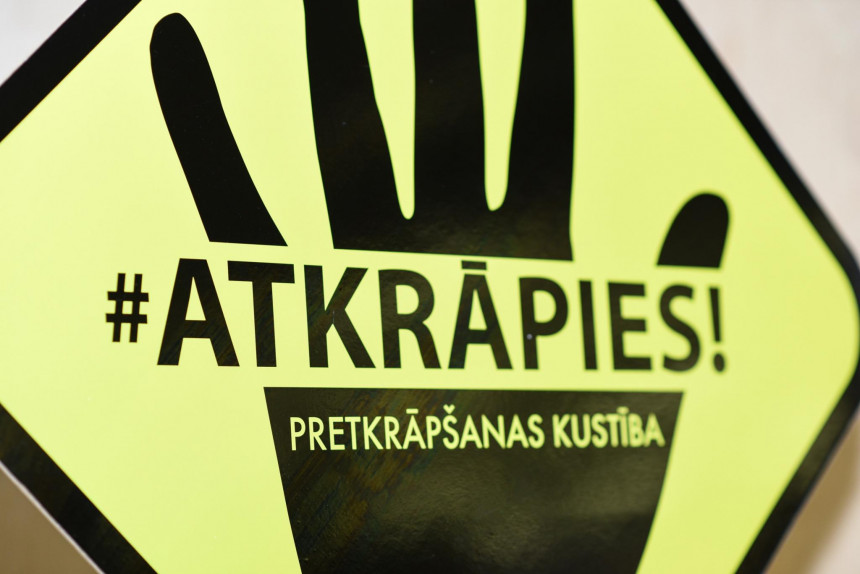NGOs have a low rating because a part of them curry favor with the ruling power

The research center SKDS has established public trust indices and ratings for various institutions in Latvia, including non-governmental (public) organizations, which are various associations and foundations. The study found that in the category "All citizens", non-governmental organizations have a negative rating of minus 4.4. In 2021 and 2020, 40% of respondents have expressed that they do not trust them. But there was a time when the level of trust in them was noticeably higher - in 2010, 31% did not trust them.
So what has happened, why such a poor result? After all, NGOs are such a beautiful thing - they are socially active people who come together when they have a common interest in a sector or issue - beekeepers, animal lovers, botanists, disability and sports organizations, educators and public relations specialists all come together. There are more than 12,000 public and non-governmental organizations in Latvia. It is not because of these organizations that the public distrusts them so much.
The problem probably lies in the fact that one part of the non-governmental organizations do not really meet the definition - "A non-governmental organization is a legally established organization of natural or legal persons acting independently of the government." The key words here are "independent of the government".
There are also non-governmental organizations that are, by their very nature, appendages of political parties, just like party structures, which focus all their activities on the biased pouring of water on the mill of a political force or idea.
This is the case, for example, with Transparency International Latvia (Delna), which is ostensibly a public benefit association whose aim is to promote the emergence of a democratic society by encouraging openness of information and the prevention of corruption. In reality, however, this association acted as a "support group" for the New Era Party (Jaunais laiks). Later, as a politicized and hypocritical helper of Unity (Vienotība) and New Unity (Jaunā Vienotība), Development/For! (Attīstībai/Par!) and the New Conservative Party (Jaunā konservatīvā partija). Everything done by other parties, by local entrepreneurs, is seen as corruption through the prism of this organization, while the political forces currently in power are the "good guys." I doubt the public has missed this. That is why it undermines the overall rating of all NGOs. Delna is part of Transparency International, a respected international anti-corruption organization, but its activities in Latvia's domestic politics have long been biased - the "good" politicians are covered up, while the "bad" ones are attacked viciously, not always justified.
Then there is Providus, which does everything that Delna does - the same bias and hypocritical favor currying with the "right" political forces who are on the "right side of history".
Moreover, in recent years, these organizations have not really found a use for themselves, they are very disoriented, because their favorites are in power - in the country, in Riga. They are not going to attack their own people, after all.
A principled anti-corruption organization would attack, but these are not principled.
There are also a number of narrow interest organizations in Latvia, such as Mozaīka, which was founded with the aim of improving LGBT human rights in Latvia. There is nothing to reproach here because each and every one has the right to have relationships. If Mozaīka believes that there are not enough human rights for gays, lesbians and transgender people in Latvia, so be it. When asked about non-governmental organizations, Mozaīka was probably one of the first that came to mind to the respondents. But if the respondent is conservative in his or her views, it is unlikely that Mozaīka will inspire confidence.
Trade unions also have a less than excellent rating - minus 2.1 among the general population. This is not too bad, but not too good either. Older people still identify trade unions with the Soviet-era "profsoyuz", which did little more than hand out assignments to resorts, but did not defend workers. And collected membership fees.
Trade unions are not yet and still are not, comparable to trade unions in the "old" EU countries, where a lot can be achieved through trade unionism. In the West, trade unions start fierce and vivid protests. Meanwhile, in Latvia, trade unions just keep suffering. It cannot be said that the unions of medical or education workers are doing a bad job, but this is mainly just in the form of demanding higher wages. It probably doesn't really work, because everyone mostly cares about themselves and workers in other sectors are not united with teachers or doctors.
Is there anything positive in the SKDS study? Yes, there is. For example, people trust their local government. Among all citizens, the local government of their municipality has a rating of plus 16.6.
